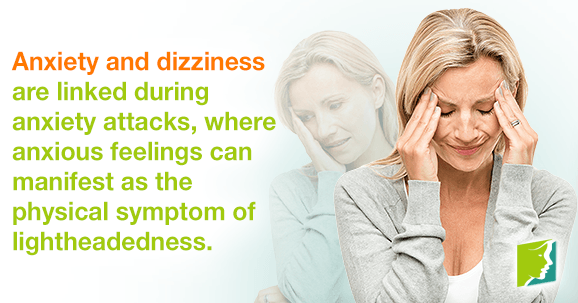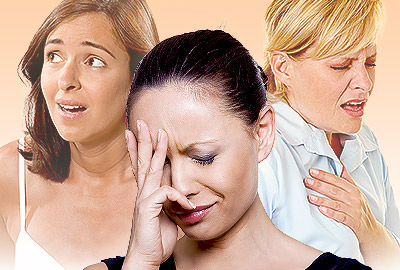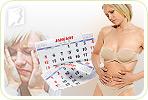Anxiety and dizziness commonly go hand-in-hand, as anxiety attacks are typically characterized by feeling dizzy and lightheaded. These symptoms are common complaints, especially among older women going through menopause. Hormone fluctuations are the primary cause of anxiety in women, especially during menstruation, pregnancy, and menopause. It is important to manage anxiety so that you can remain calm when you feel symptoms coming on. Keep reading to learn more about anxiety and dizziness.
Anxiety
Anxiety is a psychological condition that is characterized by the intense, constant feelings of worry, and nervousness, even when there is no rational reason to provoke these feelings. The leading cause of anxiety in older women is hormone fluctuations experienced during the menopause transition.
During the menopause transition, women's estrogen levels fluctuate, fall, and then stay consistently low. Estrogen significantly affects the brain's regulation of moods and emotions. Therefore, when a woman's estrogen levels drop, she is at higher risk of developing anxiety.
Other causes of anxiety include:
- High stress
- Genetics
- Certain medications
- Excessive caffeine consumption
- Emotional trauma
- Lack of exercise
- Unhealthy diet
Dizziness
Dizziness is described as feeling lightheaded, weak, or faint. Vertigo is a type of dizziness that creates a spinning sensation, but usually doesn't last long.
Typical symptoms of dizziness are:
- False sense of motion
- Loss of balance
- Loss of consciousness
Additional symptoms can include:
- Blurred vision
- Hearing loss
- Headaches
- Difficulty speaking
- Difficulty walking
- Irregular heartbeat
There are several causes of dizziness, most of which can be traced back to physical conditions, such as a sudden drop in blood pressure or inner ear imbalance. A sudden drop in blood pressure can cause dizziness and lightheadedness. This is typically caused by standing up too quickly or right after eating a big meal. The inner ear contains sensors that help detect motion and gravity, so if your equilibrium is off, you are likely to experience dizziness and nausea.
The Link
Dizziness and anxiety are most commonly linked during anxiety attacks. Symptoms of an anxiety attack are primarily physical, and can include things like dizziness, sweating, numbness of the hands, blurred vision, and nausea.
It is important to try to manage anxiety symptoms through a few prevention tactics. Exercising regularly - at least 30 minutes of aerobic activity per day - can help reduce stress and prevent anxiety attacks. Yoga, walking, and cycling are all excellent low-intensity workouts. In addition, deep breathing regularly - not just when an attack strikes - can reduce stress, leading to less anxiety.
Generally, dizziness and anxiety do not indicate serious health concerns. However, if you are driving and start to experience dizziness or an anxiety attack, you should make your way to the shoulder of the road or somewhere you can pull over. This will provide safety while you ride out the anxiety attack. It is important to keep breathing and give yourself a few minutes to recover. Avoiding sugary drinks, heavy meals, and skipped meals is recommended to prevent dizziness and anxiety.
Sources
- Mayo Clinic Staff. (2012). Dizziness Causes. Retrieved October 30, 2014, from http://www.mayoclinic.org/diseases-conditions/dizziness/basics/causes/con-20023004
- National Institute of Mental Health. (n.d.). Anxiety Disorders. Retrieved October 30, 2014, from http://www.nimh.nih.gov/health/publications/anxiety-disorders/index.shtml




